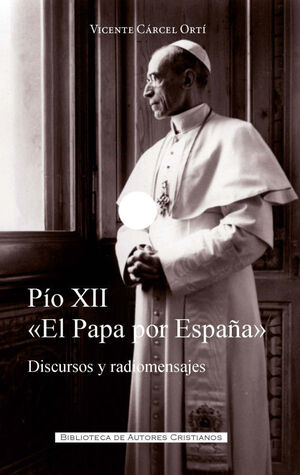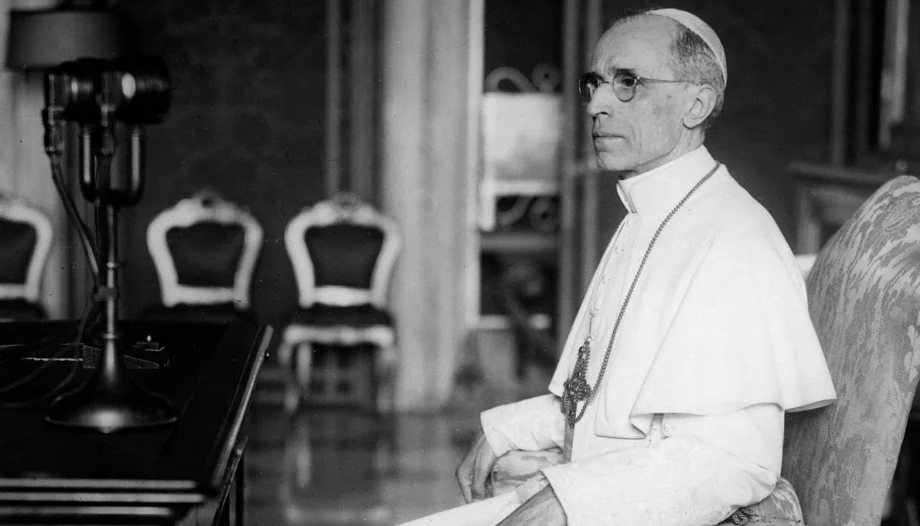The veteran Church historian Vicente Cárcel Ortí (Manises Valencia 1940), specialist in contemporary Church history, has worked on the preparation of the Vatican archives in order to give access to the funds about the pontificate of the venerable servant of God Pius XII.
That is to say, when the Holy Father decides to open the doors of the Vatican Apostolic Archives, the oldest and most complete government archives in the world, the documentation is read and arranged in the general and reserved collections. In this way, historians can publish serious and reliable works while at the same time avoiding putting in the hands of anyone, questions of conscience or especially delicate matters about which the necessary reserve and delicacy in their treatment must always be maintained.
A key work on Pius XII and Spain
After many years working and teaching in the pontifical universities and writing works of great importance, Dr. Cárcel Ortí provides us with the first and most important document on the relations between Pius XII and Spain.
Once again, as he did with the pontiff Pius XI, Cárcel Ortí has published in the BAC the first volume on Pius XII's collections, with first-hand documentation from the Vatican Apostolic Archives and with updated and recent bibliography. A real first that historians have at hand from now on and that will be expanded with more documentation and successive works.
The first thing we have to thank the Valencian historian for is the magnificent documented biography of the Roman Pontiff with which he begins this magnificent volume that we now present. Certainly, he has placed in our hands, documents of great value thanks to which we have been able to know in greater detail the human and supernatural profile of Pius XII, as well as more obscure moments of his biography, almost unknown to date. For example, here it is specified how Pope Pius XI was preparing his Secretary of State to succeed him after being elected by the Holy Spirit in the conclave of 1939. In this way one can understand the trips and delegations of the last years (p. 141).
Pius XII in the face of Nazism and Francoism
As is well known, the opening of the Vatican Apostolic Archives concerning the pontificate of Pius XII was brought forward to 2020, and has been brought forward from its usual date by a wish of Pope Francis, especially motivated to put an end to the false interpretations and accusations of collusion of Pope Pius XII with the Hitler regime.
Undoubtedly, the documentation provided is devastating and definitively frees the Roman Pontiff from any “cover-up” and, of course, from the accusation of guilty silence. The documents provided are clear that Pius XII, first as nuncio in Germany (p. 40), as Secretary of State and as Roman Pontiff, unmasked Hitler before public opinion, condemned his doctrine and ideology and fought strenuously to save the Jews and all humanity from the racism underlying Nazism and, therefore, the vast destructive capacity of humanity that it contained (p. 148-199).
It is also very interesting, the Roman Pontiff's dedication to Spain, both from his time as Secretary of State when he was able to closely follow the evolution of the civil war and encouraged Pius XI to receive 500 survivors of the war in Rome on September 14, 1936. Many times throughout his pontificate, the phrase that appears on the cover of this book resounded in his ears: to the cries of the Spaniards “Spain for the Pope”, he replied: “The Pope for Spain”.
The documentation provided by Vicente Cárcel Ortí confirms the distrust of Pius XII towards the Franco regime due to its totalitarian character and, therefore, subject to a diplomatic blockade by the United Nations (p. 297). He then goes on to say: “Pius XII recommended moderation, love and forgiveness to Franco, but he was not always listened to, and with regard to the Regime, he was concerned about its immobility and agreed on the need for an opening, without the slightest doubt, but carried out at the appropriate speed to avoid traumas and tears. The hierarchy also demanded an opening of the Regime, as slowly as necessary, but never its closure” (p. 298).
It is very interesting to note the intense process of negotiation of the 1953 Concordat in the Vatican documentary sources, where they were fully aware of the fragility of the dictatorship and how it would lose strength and internal support over the years precisely because of the strength of the nascent European Community, which would end up imposing itself both politically and economically.
At the same time, the Holy See was aware of Franco's immobility and his inability to allow political freedoms in an increasingly personal and autarchic regime. Hence the effort to reach a Concordat of long duration like those being drawn up with other Western countries (p. 337).
About Opus Dei
Another interesting chapter of this work is about the juridical itinerary of Opus Dei. This is precisely the title of an extraordinary work carried out some years ago by three eminent persons: José Luis Illanes, Amadeo de Fuenmayor and Valentín Gómez Iglesias, who contributed the documents they had at their disposal to study how Opus Dei had been adopting the juridical clothing necessary to safeguard its charism and enable it to work throughout the world in unity with the Holy Father, the bishops and the entire Church, safeguarding the lay and secular charism of the majority of its ordinary faithful of every class and condition. Likewise, these authors studied juridically the various formulas that the Holy See was providing for the unity in the work of priests and laity until, in 1982, they finally arrived at the Prelature of Opus Dei united to the Priestly Society of the Holy Cross. Logically, after the opening of the Vatican Archives, this work will have to be revised (pp. 450-470).
As is well known, and as Professor Vicente Cárcel Ortí recognizes, since the juridical configuration of the prelatures has changed in the Code and following Francis“ own Motu proprio ”Ad charisma tuendum", a process of adaptation of the Statutes has begun and is currently underway (p. 439).
Pius XII. The Pope for Spain








